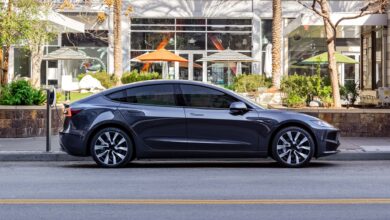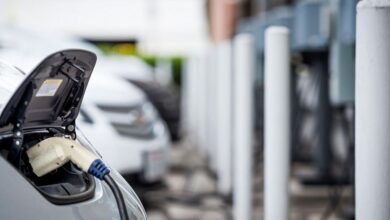Europe ponders additional tariffs for China-made electric vehicles

The electric vehicle market in Europe seems poised to see some substantial changes in the coming months, with the European Commission telling automakers on Wednesday that China-based EV imports could see additional tariffs of up to 38% from next month. The additional duties would be implemented on top of the current 10% tariff placed on all EVs that are produced in China.
The European Commission’s announcement came following an anti-subsidy probe, as noted in an AFP News report. The tariffs given to China-based EVs would depend on the level of state subsidies that automakers receive. With this in mind, the European Commission has ordered a provisional hike of tariffs on several Chinese automakers.
These include BYD, which is poised to receive additional tariffs of 17.4%; Geely, which will receive 20%, and SAIC, which will receive a substantial 38.1% additional tariff. All other EV companies from China that cooperated with the European Commission’s probe are expected to see an average tariff of 21%, while electric vehicle makers that did not cooperate with the probe would see an additional 38.1% duty. Tesla cooperated in the EU’s probe, and thus, its Model 3 imports to the region are poised to receive an additional 21% tariff.
“The Commission has provisionally concluded that the battery electric vehicles (BEV) value chain in China benefits from unfair subsidization, which is causing a threat of economic injury to EU BEV producers. Should discussions with Chinese authorities not lead to an effective solution, these provisional countervailing duties would be introduced,” the European Commission noted.
The additional tariffs are expected to be applied starting July 4, with full implementation being rolled out from November, as noted in a Reuters report. This is, at least, unless a qualified majority of EU states decide against the system. Some members of the European Union, such as Germany, have already spoken up against the additional tariffs.
As per transport minister Volker Wissing, a trade war and market isolation are not the way. “Cars must become cheaper through more competition, open markets, and significantly better business conditions in the EU, not through trade war and market isolation,” Wissing wrote in a post on X.
China, for its part, has criticized the European Commission’s additional tariffs, stating that such a move would “harm Europe’s own interests.” China also claimed that the additional tariffs amount to protectionism. China foreign ministry spokesman Lin Jian noted that the country would take all necessary measures to protect its EV makers’ interests.
“This anti-subsidy investigation is a typical case of protectionism… It goes against the principles of market economy and international trade rules undermines China-EU economic and trade cooperation as well as the stability of the global automobile production and supply chain. China will take all necessary measures to firmly safeguard its legitimate rights and interests,” the foreign ministry spokesman noted.
Chinese Passenger Car Association (CPCA) Secretary General Cui Dongshu shared a tempered view on the matter. “The EU’s provisional tariffs come basically within our expectations, averaging around 20%, which won’t have much of an impact on the majority of Chinese firms. Those exporting China-made EVs that include Tesla, Geely and BYD still have huge potential for development in Europe in the future,” the CPCA official noted.
Don’t hesitate to contact us with news tips. Just send a message to simon@teslarati.com to give us a heads up.



